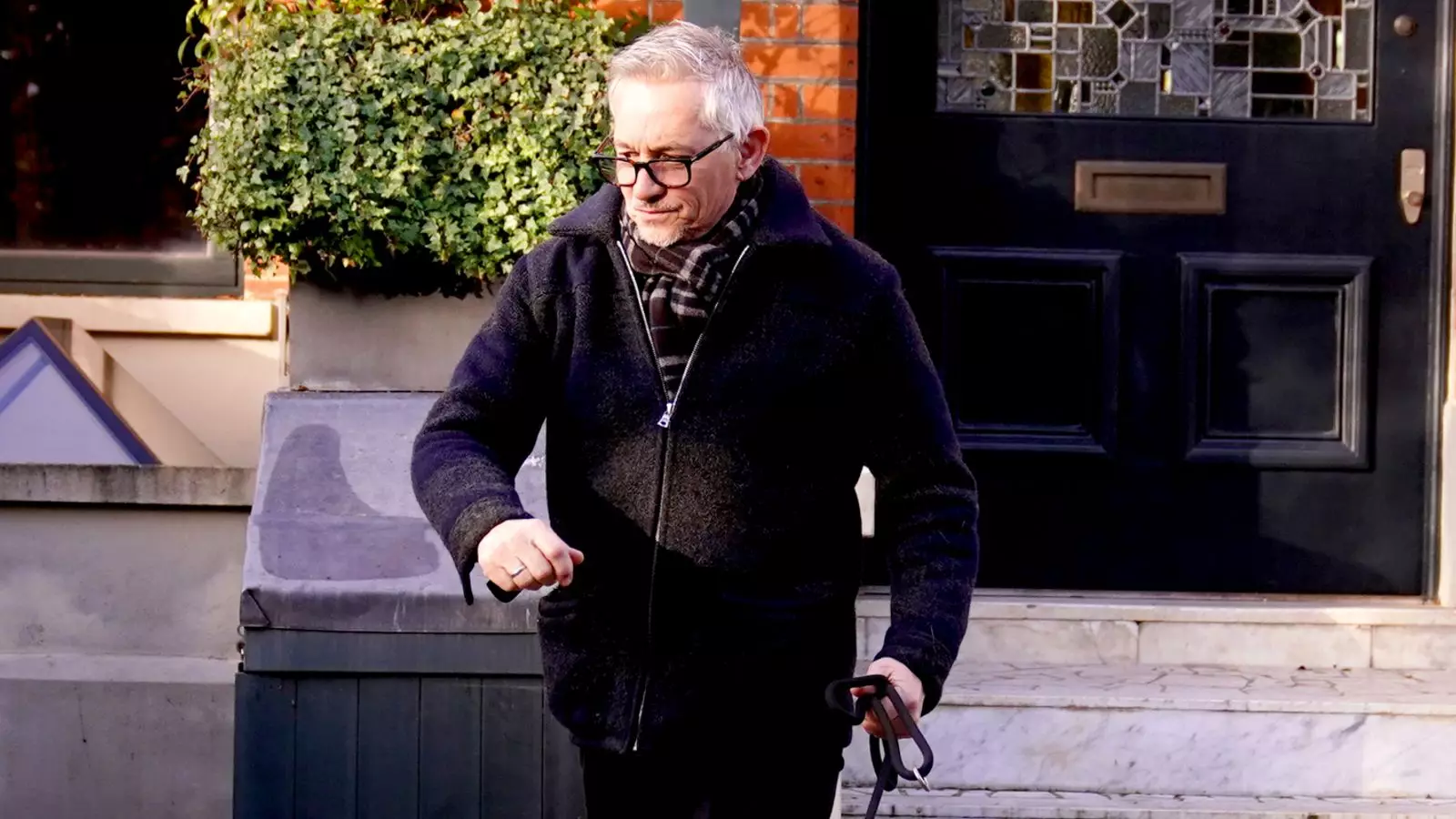Gary Lineker’s announcement that he will step down as the host of the iconic Match Of The Day (MOTD) at the conclusion of this football season marks a significant shift in the landscape of sports broadcasting. For over two decades, the 63-year-old former England striker has been the face of this beloved show, captivating audiences with his charisma and insightful commentary. In a statement, the BBC confirmed that while Lineker will conclude his long-standing role with MOTD, he will remain actively involved in football coverage through other platforms, including the FA Cup and the upcoming World Cup in 2026.
Lineker’s tenure on MOTD has not merely been a job; it has evolved into a cultural phenomenon, with him often regarded as synonymous with the show itself. His departure leaves behind a legacy that is sure to be felt for years to come, both by viewers and the broadcasting community. It’s worth pondering what his exit means for the future of the program, which has become an institution in British football.
Despite stepping down from MOTD, Lineker is not turning his back on football. He will continue hosting the FA Cup coverage for the 2025/26 season, allowing him to retain a strong voice in the sport. Furthermore, the continuation of his popular podcasting ventures, including “The Rest Is Football” and collaborations with fellow pundits on BBC Sounds, signifies his commitment to evolving with the medium. This adaptability may be what distinguishes Lineker in an increasingly digital landscape where traditional television viewing is steadily declining while podcasting continues to gain traction.
Lineker’s success can also be attributed to his ability to blend entertainment and insightful journalism, earning him a reputation as a presenter who connects with audiences on both an emotional and intellectual level. His transition from television to podcasting is not merely a sideways step but rather indicative of his understanding of the shifting dynamics in media consumption. His partnership with Goalhanger Podcasts demonstrates his prowess in recognizing and harnessing this evolving platform.
The BBC and its audiences will undeniably feel the absence of Lineker on MOTD. His influence over the years has helped convert the show into a staple of Saturday night television, drawing millions of viewers weekly. This is not just about losing a presenter; it’s about redefining the brand itself. Alex Kay-Jelski, the director of BBC Sport, expressed gratitude towards Lineker, acknowledging the profound impact he has had on the show. The question remains: who will carry the torch forward?
While Jermaine Jenas was previously rumored to be a potential successor, his recent departure from the BBC complicates the transitional narrative. This situation highlights the challenges of finding a suitable replacement who can match Lineker’s blend of expertise, charisma, and relatability. Will the next host be able to resonate as deeply with viewers or will they find themselves in the daunting shadow of a broadcasting luminary?
Lineker’s accomplishments extend far beyond the television screen. As an elite striker for the England national team, earning 80 caps and various accolades during his playing days, he seamlessly transitioned from the football pitch to the broadcasting booth, a task not easily accomplished by many athletes. His ability to communicate complex football concepts in relatable ways helped demystify the sport for casual viewers while still engaging hardcore fans.
As we consider Lineker’s contributions both as a player and a broadcaster, one can’t help but wonder what his legacy will be. Will future generations recognize him as a footballing legend or merely as a podcasting figure? One thing is certain: as the curtain falls on his time as the MOFT host, the voice of Gary Lineker will continue to resonate through countless football-related discussions, podcasts, and events, ensuring he remains an integral part of football’s evolving narrative.
In closing, as we reflect on this pivotal moment, it is necessary to recognize the implications of change within established media outlets. Gary Lineker’s departure is more than a simple career move—it is a reflection of the changing face of sports broadcasting as it adapts to new mediums and audience preferences. The excitement of future seasons and coverage now lies ahead, with the opportunity for fresh perspectives to emerge.


Leave a Reply